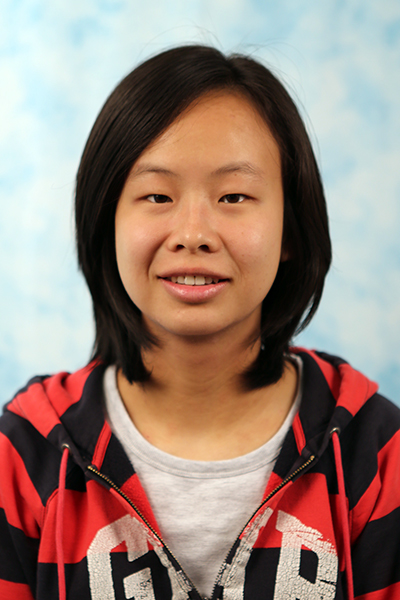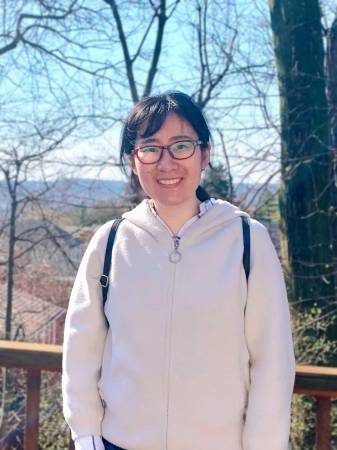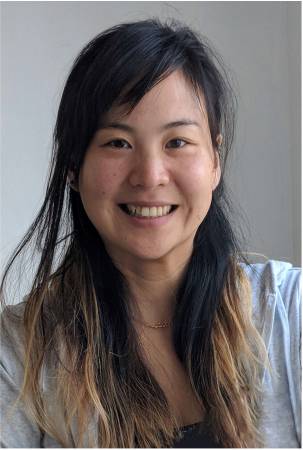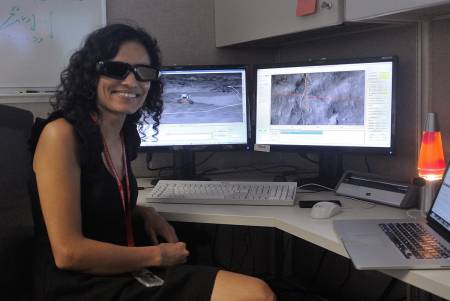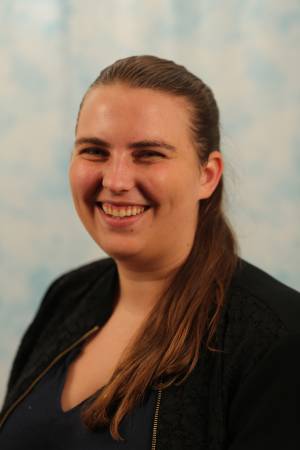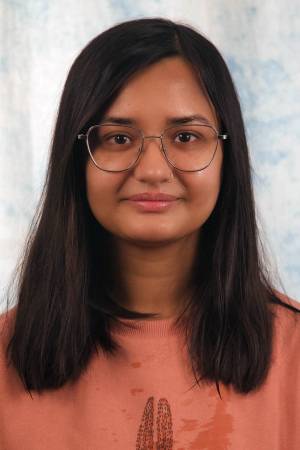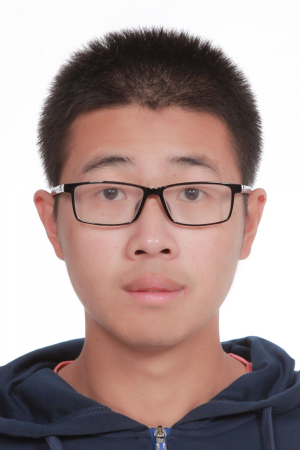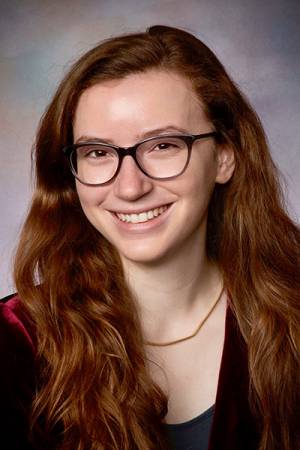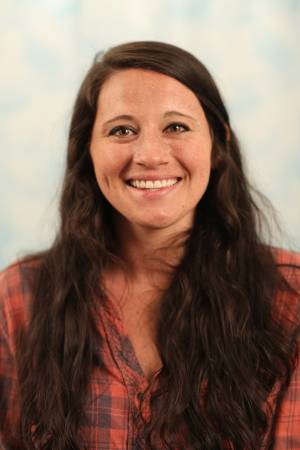A Multi-view Synthetic and Real-world Human Activity Recognition Dataset
Abstract: Advancements in Human Activity Recognition (HAR) partially relies on the creation of datasets that cover a broad range of activities under various conditions. Unfortunately, obtaining and labeling datasets containing human activity is complex, laborious, and costly. One way to mitigate these difficulties with sufficient generality to provide robust activity recognition on unseen data is [...]
RI Faculty Business Meeting
Meeting for RI Faculty. Discussions include various department topics, policies, and procedures. Generally meets weekly.
A Constructivist’s Guide to Robot Learning
Over the last decade, a variety of paradigms have sought to teach robots complex and dexterous behaviors in real-world environments. On one end of the spectrum we have nativist approaches that bake in fundamental human knowledge through physics models, simulators and knowledge graphs. While on the other end of the spectrum we have tabula-rasa approaches [...]
Robot Learning by Understanding Egocentric Videos
Abstract: True gains of machine learning in AI sub-fields such as computer vision and natural language processing have come about from the use of large-scale diverse datasets for learning. In this talk, I will discuss if and how we can leverage large-scale diverse data in the form of egocentric videos (first-person videos of humans conducting [...]
Eye Gaze for Intelligent Driving
Abstract: Intelligent vehicles have been proposed as one path to increasing vehicular safety and reduce on-road crashes. Driving intelligence has taken many forms, ranging from simple blind spot occupancy or forward collision warnings to lane keeping and all the way to full driving autonomy in certain situations. Primarily, these methods are outward-facing and operate on [...]
Dense 3D Representation Learning for Geometric Reasoning in Manipulation Tasks
Abstract: When solving a manipulation task like "put away the groceries" in real environments, robots must understand what *can* happen in these environments, as well as what *should* happen in order to accomplish the task. This knowledge can enable downstream robot policies to directly reason about which actions they should execute, and rule out behaviors [...]
RI Faculty Business Meeting
Meeting for RI Faculty. Discussions include various department topics, policies, and procedures. Generally meets weekly.
Next-Generation Robot Perception: Hierarchical Representations, Certifiable Algorithms, and Self-Supervised Learning
Spatial perception —the robot’s ability to sense and understand the surrounding environment— is a key enabler for robot navigation, manipulation, and human-robot interaction. Recent advances in perception algorithms and systems have enabled robots to create large-scale geometric maps of unknown environments and detect objects of interest. Despite these advances, a large gap still separates robot [...]
Autonomous mobility in Mars exploration: recent achievements and future prospects
Abstract: This talk will summarize key recent advances in autonomous surface and aerial mobility for Mars exploration, then discuss potential future missions and technology needs for Mars and other planetary bodies. Among recent advances, the Perseverance rover that is now operating on Mars includes new autonomous navigation capability that dramatically increases its traverse speed over [...]
Passive Coupling in Robot Swarms
Abstract: In unstructured environments, ant colonies demonstrate remarkable abilities to adaptively form functional structures in response to various obstacles, such as stairs, gaps, and holes. Drawing inspiration from these creatures, robot swarms can collectively exhibit complex behaviors and achieve tasks that individual robots cannot accomplish. Existing modular robot platforms that employ dynamic coupling and decoupling [...]
RI Faculty Business Meeting
Meeting for RI Faculty. Discussions include various department topics, policies, and procedures. Generally meets weekly.
Structures and Environments for Generalist Agents
Abstract: We are entering an era of highly general AI, enabled by supervised models of the Internet. However, it remains an open question how intelligence emerged in the first place, before there was an Internet to imitate. Understanding the emergence of skillful behavior, without expert data to imitate, has been a longstanding goal of reinforcement [...]
Learning novel objects during robot exploration via human-informed few-shot detection
Abstract: Autonomous mobile robots exploring in unfamiliar environments often need to detect target objects during exploration. Most prevalent approach is to use conventional object detection models, by training the object detector on large abundant image-annotation dataset, with a fixed and predefined categories of objects, and in advance of robot deployment. However, it lacks the capability [...]
Learning to Perceive and Predict Everyday Interactions
Abstract: This thesis aims to develop a computer vision system that can understand everyday human interactions with rich spatial information. Such systems can benefit VR/AR to perceive the reality and modify its virtual twin, and robotics to learn manipulation by watching human. Previous methods have been limited to constrained lab environment or pre-selected objects with [...]
Faculty Candidate: Wenshan Wang
Title: Towards General Autonomy: Learning from Simulation, Interaction, and Demonstration Abstract: Today's autonomous systems are still brittle in challenging environments or rely on designers to anticipate all possible scenarios to respond appropriately. On the other hand, leveraging machine learning techniques, robot systems are trained in simulation or the real world for various tasks. Due to [...]
From Videos to 4D Worlds and Beyond
Abstract: Abstract: The world underlying images and videos is 3-dimensional and dynamic, i.e. 4D, with people interacting with each other, objects, and the underlying scene. Even in videos of a static scene, there is always the camera moving about in the 4D world. Accurately recovering this information is essential for building systems that can reason [...]
Learning Models and Cost Functions from Unlabeled Data for Off-Road Driving
Abstract: Off-road driving is an important instance of navigation in unstructured environments, which is a key robotics problem with many applications, such as exploration, agriculture, disaster response and defense. The key challenge in off-road driving is to be able to take in high dimensional, multi-modal sensing data and use it to make intelligent decisions on [...]
Active Vision for Manipulation
Abstract: Decades of research on computer vision has highlighted the importance of active sensing -- where the agent actively controls parameters of the sensor to improve perception. Research on active perception the context of robotic manipulation has demonstrated many novel and robust sensing strategies involving a multitude of sensors like RGB and RGBD cameras, a [...]
Teruko Yata Memorial Lecture : Mobility and Manipulation Independence with Interface-Aware Robotics Intelligence
Dr. Brenna Argall is an associate professor of Mechanical Engineering, Electrical Engineering & Computer Science and Physical Medicine & Rehabilitation at Northwestern University. Her research lies at the intersection of robotics autonomy, machine learning and human rehabilitation. She is director of the assistive & rehabilitation robotics laboratory (argallab) at the Rehabilitation Institute of Chicago (RIC, [...]
RI Faculty Business Meeting
Meeting for RI Faculty. Discussions include various department topics, policies, and procedures. Generally meets weekly.
Mars Robots and Robotics at NASA JPL
Abstract: In this seminar I’ll discuss Mars robots, the unprecedented results we’re seeing with the latest Mars mission, and how we got here. Perseverance’s manipulation and sampling systems have collected samples from unique locations at twice the rate of any prior mission. 88% of all driving has been autonomous. This has enabled the mission to [...]
Continually Improving Robots
Abstract: General purpose robots should be able to perform arbitrary manipulation tasks, and get better at performing new ones as they obtain more experience. The current paradigm in robot learning involves training a policy, in simulation or directly in the real world, with engineered rewards or demonstrations. However, for robots that need to keep learning [...]
Carnegie Mellon University
Parallelized Search on Graphs with Expensive-to-Compute Edges
Abstract: Search-based planning algorithms enable robots to come up with well-reasoned long-horizon plans to achieve a given task objective. They formulate the problem as a shortest path problem on a graph embedded in the state space of the domain. Much research has been dedicated to achieving greater planning speeds to enable robots to respond quickly [...]
Generative and Animatable Radiance Fields
Abstract: Generating and transforming content requires both creativity and skill. Creativity defines what is being created and why, while skill answers the question of how. While creativity is believed to be abundant, skill can often be a barrier to creativity. In our team, we aim to substantially reduce this barrier. Recent Generative AI methods have simplified the problem for 2D [...]
MSR Thesis Talk: Chonghyuk Song
Title: Total-Recon: Deformable Scene Reconstruction for Embodied View Synthesis Abstract: We explore the task of embodied view synthesis from monocular videos of deformable scenes. Given a minute-long RGBD video of people interacting with their pets, we render the scene from novel camera trajectories derived from in-scene motion of actors: (1) egocentric cameras that simulate the point [...]
Design Iteration of Dexterous Compliant Robotic Manipulators
Abstract: One goal of personal robotics is to have robots in homes performing everyday tasks efficiently to improve our quality of life. Towards this end, manipulators are needed which are low cost, safe around humans, and approach human-level dexterity. However, existing off-the-shelf manipulators are expensive both in cost and manufacturing time, difficult to repair, and [...]
MSR Thesis Talk: Shivam Duggal
Title: Learning Single Image 3D Reconstruction from Single-View Image Collections Abstract We present a framework for learning 3D object shapes and dense cross-object 3D correspondences from just an unaligned category-specific image collection. The 3D shapes are generated implicitly as deformations to a category-specific signed distance field and are learned in an unsupervised manner solely from unaligned [...]
Whisker Sensors for Unstructured Environments
Abstract: As robot applications expand from controllable factory settings to unknown environments, the robots will need a larger breadth of sensors to perceive these complex environments. In this thesis, I focus on developing whisker sensors for robot perception. The inspiration for whisker sensors comes from the biological world, where whiskers serve as tactile and flow [...]
MSR Thesis Talk: Himangi Mittal
Title: Audio-Visual State-Aware Representation Learning from Interaction-Rich Data Abstract In robotics and augmented reality, the input to the agent is a long stream of video from the first-person or egocentric point of view. Recently, there have been significant efforts to capture humans from their first-person/egocentric view interacting with their own environment as they go about [...]
MSR Thesis Talk: Ken Liu
Title: On Privacy and Personalization in Federated Learning: Analyses and Applications Abstract: Recent advances in machine learning often rely on large and centralized datasets. However, curating such data can be challenging when they hold private information, and policies/regulations may mandate that they remain distributed across data silos (e.g. mobile devices or hospitals). Federated learning (FL) [...]
Carnegie Mellon University
MSR Thesis Talk: Haolun Zhang
Title: Seeing in 3D: Towards Generalizable 3D Visual Representations for Robotic Manipulation Abstract: Despite the recent progress in computer vision and deep learning, robot perception remains a tremendous challenge due to the variations of the objects and the scenes in manipulation tasks. Ideally, a robot trying to manipulate a new object should be able to [...]
MSR Thesis Talk: Muyang Li
Title: Efficient Spatially Sparse Inference for Conditional GANs and Diffusion Models Abstract: During image editing, existing deep generative models tend to re-synthesize the entire output from scratch, including the unedited regions. This leads to a significant waste of computation, especially for minor editing operations. In this work, we present Spatially Sparse Inference (SSI), a general-purpose technique [...]
3D-aware Conditional Image Synthesis
Abstract: We propose pix2pix3D, a 3D-aware conditional generative model for controllable photorealistic image synthesis. Given a 2D label map, such as a segmentation or edge map, our model learns to synthesize a corresponding image from different viewpoints. To enable explicit 3D user control, we extend conditional generative models with neural radiance fields. Given widely-available posed [...]
Promoting Human Creativity with FRIDA: Framework and Robotics Initiative for Developing Arts
ABSTRACT: FRIDA, a reference to the vibrant painter Frida Kahlo, stands for a Framework and Robotics Initiative for Developing Arts to promote human creativity. FRIDA supports intuitive ways for people to collaboratively create artworks including natural language, images, and sounds. Because FRIDA is for real-world arts, our work is uniquely different from digital art tools [...]
RI Faculty Business Meeting
Meeting for RI Faculty. Discussions include various department topics, policies, and procedures. Generally meets weekly.
Robotic Climbing for Extreme Terrain Exploration
Abstract: Climbing robots can investigate scientifically valuable sites that are inaccessible to conventional rovers due to steep terrain features. Robots equipped with microspine grippers are particularly well-suited to ascending rocky cliff faces, but existing designs are either large and slow, or limited to relatively flat surfaces such as buildings. We have developed a novel free-climbing [...]
MSR Thesis Talk: Rohan Zeng
Title: Spectral Unmixing and Mapping of Coral Reef Benthic Cover Abstract: Coral reefs are important to the global ecosystem and the local communities and wildlife that rely on the habitat they create. However, coral reefs are also in critical and rapid decline: reefs have degraded over recent decades and what remains is at increasing risk [...]
Generative modeling: from 3D scenes to fields and manifold
Abstract: In this keynote talk, we delve into some of our progress on generative models that are able to capture the distribution of intricate and realistic 3D scenes and fields. We explore a formulation of generative modeling that optimizes latent representations for disentangling radiance fields and camera poses, enabling both unconditional and conditional generation of 3D [...]
MSR Thesis Talk: Ashwin Misra
Title: Learn2Plan: Learning variable ordering heuristics for scalable task planning Abstract: Traditional approaches to planning attempt to transform a system into a goal state by applying specific actions in a specific order. In these methods, there is an exponential search space due to considering many possible actions at every decision point. Hierarchical Task Networks use incremental [...]
MSR Thesis Talk: Andrew Jong
Title: Robot Information Gathering for Dynamic Systems in Wildfire Scenarios Abstract: The monitoring of complex dynamic systems, such as those encountered in disaster response, search and rescue, wildlife conservation, and environmental monitoring, presents the fundamental challenge of how to track efficiently with limited resources and partial observability. This thesis presents algorithms and techniques for robotic [...]
Carnegie Mellon University
Visual Dataset Pipeline: From Curation to Long-Tail Learning
Abstract: Computer vision models have proven to be tremendously capable of recognizing and detecting several real-world objects: cars, people, pets. These models are only possible due to a meticulous pipeline where a task and application is first conceived followed by an appropriate dataset curation that collects and labels all necessary data. Commonly, studies are focused [...]
MSR Thesis Talk: Erin Wong
Title: Edge Detection by Centimeter Scale Low-Cost Mobile Robots Abstract: In Search and Rescue (SaR) efforts after natural disasters like earthquakes, the primary focus is to find and rescue people in building rubble. These rescue efforts could put first responders at risk and are slow due to the unstable nature of the environment. Robotic solutions [...]
Multi-Objective Ergodic Search for Dynamic Information Maps
Abstract: Robotic explorers are essential tools for gathering information about regions that are inaccessible to humans. For applications like planetary exploration or search and rescue, robots use prior knowledge about the area to guide their search. Ergodic search methods find trajectories that effectively balance exploring unknown regions and exploiting prior information. In many search based [...]
Observing Assistance Preferences via User-controlled Arbitration in Shared Control
Abstract: What factors influence people’s preferences for robot assistance during human-robot collaboration tasks? Answering this question can help roboticists formalize definitions of assistance that lead to higher user satisfaction and increased user acceptance of assistive technology. Often in human robot collaboration literature, we see assistance paradigms that aim to optimize task success metrics and/or measures [...]
RI Faculty Business Meeting
Meeting for RI Faculty. Discussions include various department topics, policies, and procedures. Generally meets weekly.
Sparse-view 3D in the Wild
Abstract: Reconstructing 3D scenes and objects from images alone has been a long-standing goal in computer vision. We have seen tremendous progress in recent years, capable of producing near photo-realistic renderings from any viewpoint. However, existing approaches generally rely on a large number of input images (typically 50-100) in order to compute camera poses and [...]
Safely Influencing Humans in Human-Robot Interaction
Abstract: Robots are becoming more common in industrial manufacturing because of their speed and precision on repetitive tasks, but they lack the flexibility of human collaborators. In order to take advantage of both humans’ and robots’ abilities, we investigate how to improve the efficiency of human-robot collaborations by making sure that robots both 1. stay [...]
Inductive Biases for Learning Long-Horizon Manipulation Skills
Abstract: Enabling robots to execute temporally extended sequences of behaviors is a challenging problem for learned systems, due to the difficulty of learning both high-level task information and low-level control. In this talk, I will discuss three approaches that we have developed to address this problem. Each of these approaches centers on an inductive bias [...]
Estimating Robustness using Proxies
ABSTRACT: This talk covers some of our recent explorations on estimating the robustness of black-box machine learning models across data subpopulations. In other words, if a trained model is uniformly accurate across different types of inputs, or if there are significant performance disparities affecting the different subpopulations. Measuring such a characteristic is fairly straightforward if [...]
Analogy-Forming Transformers for Few-Shot 3D Parsing
Abstract: How do we build agents that can fast generalize to novel scenarios given only a single example? In this talk, I will present analogy-forming transformers, a semi-parametric model that segments 3D object scenes by retrieving related memories and predicting analogous part structures for the input. This enables a single neural network to continually learn [...]
Range-based Gaussian Process Maps for Mobile Exploration Robots
Abstract: Mobile robots exploring unknown, natural environments with limited communication must map their surroundings using onboard sensors. In this context, terrain mapping can rely on Gaussian process models to incorporate spatial correlations and provide uncertainty estimates when predicting ground height - however, these models fail to account for the oblique viewpoint of a sensor on [...]
Learning Exploration Strategies to Solve Real-World Marble Runs
Abstract: Tasks involving locally unstable or discontinuous dynamics (such as bifurcations and collisions) remain challenging in robotics, because small variations in the environment can have a significant impact on task outcomes. In this talk, we present a robot system that we developed to evaluate learning algorithms on real-world physical problem solving tasks which incorporate these [...]
Beyond NeRF Underwater: Learning Neural Reflectance Fields for True Color Correction of Marine Imagery
Abstract: Underwater imagery often exhibits distorted coloration as a result of light-water interactions, which complicates the study of benthic environments in marine biology and geography. In this research, we propose an algorithm to restore the true color (albedo) in underwater imagery by jointly learning the effects of the medium and neural scene representations. Our approach [...]
RI Faculty Business Meeting
Meeting for RI Faculty. Discussions include various department topics, policies, and procedures. Generally meets weekly.
Carnegie Mellon University
Optimization of Small Unmanned Ground Vehicle Design using Reconfigurability, Mobility, and Complexity
Abstract: Unmanned ground vehicles are being deployed in increasingly diverse and complex environments. With modern developments in sensing and planning, the field of ground vehicle mobility presents rich possibilities for mechanical innovations that may be especially relevant for unmanned systems. In particular, reconfigurability may enable vehicles to traverse a wider set of terrains with greater [...]
Force-Torque Sensors – Calibration & Estimation
Abstract: Wrist force-torque sensors were among the first proprioception sensors to be developed when robotics emerged as a field. They are now a mature technology already used in structured industrial applications like sanding and drilling. While they provide essential feedback in many manipulation algorithms, they do not garner as much excitement as exteroception sensors like [...]
Optimized Tradeoffs for Differentially Private Majority Ensembling
Abstract: Inspired by the common subtask of ensembling or calibrating private models, we study the problem of computing an m*epsilon-differentially private majority of K epsilon-differentially private algorithms for m < K. We introduce a general framework to compute the private majority via Randomized Response (RRM) with a data-dependent noise function gamma that subsumes any non-trivial [...]
Carnegie Mellon University
Spectral Mapping using Simple Sensors for Micro-Explorers
Abstract: Spectral mapping is an essential task in exploration as it expands our understanding of material composition in an explored region. Although imaging spectrometers are ideal for obtaining spectra to construct spectral maps, their large size, high power consumption, and operational complexity make them impractical for small rovers and limited missions. In contrast, RGB cameras [...]
Latent-NeRF for Shape-Guided Generation of 3D Shapes and Textures
Abstract: In this talk, I will focus on presenting my recent work which will be presented at CVPR in less than two months. Text-guided image generation has progressed rapidly in recent years, inspiring major breakthroughs in text-guided shape generation. Recently, it has been shown that using score distillation, one can successfully text-guide a NeRF model to [...]
Simulation-driven vision-based tactile sensor design using Physics Based Rendering
Abstract: Touch is an essential sensing modality for making autonomous robots more dexterous and works collaboratively with humans. With the advent of vision-based tactile sensors, roboticists have tried to incorporate tactile sensors in various robot structures for various robotic manipulation tasks to increase robustness, precision, and reliability. However, the design of vision-based tactile sensors is [...]
Efficient Interactive Learning with Unobserved Confounders
Abstract: Interactive learning systems like self-driving cars, recommender systems, and large language model chatbots are becoming increasingly ubiquitous in everyday life. From a machine learning perspective, the key technical challenge underlying such systems is that rather than simple prediction on i.i.d. data, an interactive learner influences the distribution of inputs it sees via the choices [...]
Carnegie Mellon University
Towards Reconstructing Non-rigidity from Single Camera
Abstract: In this talk we will discuss how to infer 3D from images captured by a single camera, without assuming the target scenes / objects being static. The non-static setting makes our problem ill-posed and challenging to solve, but is vital in practical applications where target-of-interest is non-static. To solve ill-posed problems, the current trend [...]
SCS Master’s Diploma Ceremony followed by Reception
Ceremony: 11:30 a.m. Auditorium, Soldiers & Sailors Memorial Hall & Museum 4141 Fifth Avenue, Pittsburgh, PA 15213 Reception: Following ceremony Grand Ballroom, Soldiers & Sailors Memorial Hall & Museum 4141 Fifth Avenue, Pittsburgh, PA 15213
SCS PhD Hooding Ceremony followed by Reception
SCS PhD Hooding Ceremony: 11 a.m. Kresge Theatre, College of Fine ArtsReception: Following ceremony Gates Hillman Center, 6th floor
The President’s Reception in honor of CMU’s Doctoral Candidates
Commencement Ceremony
UG Diploma Ceremony followed by Reception
Navigating to Objects in the Real World
Abstract: Semantic navigation is necessary to deploy mobile robots in uncontrolled environments like our homes, schools, and hospitals. Many learning-based approaches have been proposed in response to the lack of semantic understanding of the classical pipeline for spatial navigation, which builds a geometric map using depth sensors and plans to reach point goals. Broadly, end-to-end [...]
RI Faculty Social
Please join us for our RI Faculty Social. Heavy appetizers and beverages will be served.







